How to survive high school: A guide for parents
Nerves, new uniforms and “nude lunches” - starting Year 7 is a steep learning curve, and that’s just for the parents. Here are our top tips for how to make the transition easier for you and your child.
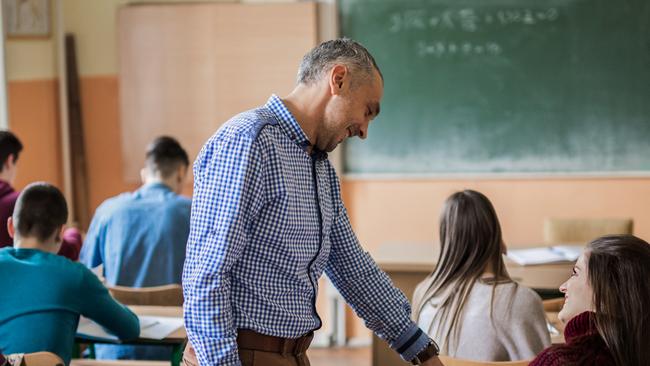
National
Don't miss out on the headlines from National. Followed categories will be added to My News.
With term four starting, most families will have sorted out secondary schooling for 2020.
Offers arrived for government schools in August, while most private schools have finalised their offers.
While zoning provides greater certainty, some families will be hoping a space comes up at their preferred out-of-zone school.
Others will not have a choice of school.
If you thought it was a big step from kindergarten to primary school, the jump from primary school to secondary school is massive.
It also marks a time when teens will become more independent and parents and carers will be balancing being less hands on with keeping up with what is happening at a much bigger school.
Education expert Professor Adrian Piccoli suggests that another way to get a feel for a school is to closely read the school’s website, newsletter and social media accounts.
Prof. Piccoli, the author of 12 Ways Your Child Can Get the Best Out of School says parents should develop a strong three-way partnership with the school.
“There are two key roles parents play in this partnership,” he said.
“The first is to prepare, encourage and support your child so they are ready to learn from the moment they walk into school every day.”
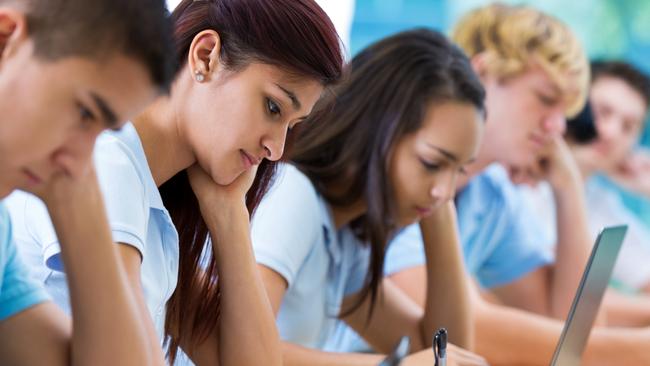
The second, he says, is to maintain communication so you know how your child is performing academically and socially.
Prof. Piccoli also says that schools are complicated places so parents should cut teachers and principals some slack.
This might mean not taking as gospel their child’s version of events until they investigate.
Here are some tips:
BE POSITIVE
If you did not get into the school you wanted, now is the time to change the tone of conversation around the kitchen table.
If you, as a parent, are disappointed that your child didn’t make the cut for an out of zone school, select entry school or scholarship, it’s not going to help if you constantly share your disappointment.
Now is the time to look at the school with fresh eyes so everyone doesn’t approach Year 7 with a sense of dread.
You will probably find plenty of upsides, such as less travel, friends, great facilities or other things you hadn’t noticed.
FIRST DAY NERVES
For Grade 6 students leaving the security of an often smaller, intimate primary school and starting at the bottom of the rung, will be challenging, daunting, exciting and or overwhelming.
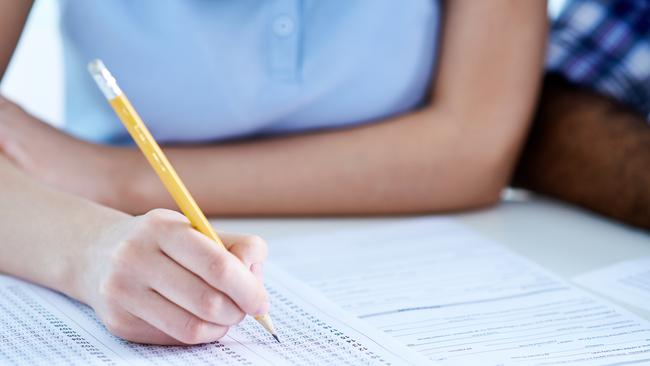
ORIENTATION DAYS
Take note of orientation or taster days in which children are invited to attend the new school.
These tend to be held in early December but some are earlier.
The children attend without parents, as a rule, and often head off with fellow primary school students attending the same school.
It is a good chance for them to navigate public transport.
TESTING
Some schools will include testing so they can allocate children to some classes, such as maths, according to levels of ability.
UNIFORMS
HAVE a good look at uniform requirements for the new school.
You may be able to put your feelers out to get second hand uniform items through friends already at the school, trading sites, school run second hand shops and online portal Sustainable School Shop.
Check out school second hand opening hours as it is a good time to get in early and get the expensive items such as blazers.
Also ask if there are plans to change the uniform.
No point buying new if it is being phased out the next year.
But when to buy uniforms?
Kids often have a big growth spurt between the end of Year 6 and start of Year 7 so be wary of buying too small.
If you are buying new you could wait until January.
Be wary of buying school shoes too early or late.
For many kids, it will be the first time they have worn school shoes so make sure they wear them in.
SCHOOL SUPPLIES
Schools will issue a list of required text books.
There is a move towards online books and some text books come with online access.
Make sure, if you are going through the supplier, that you meet the dates for lodgement.
Often they will deliver, for an extra fee, to your house or you can collect at the school on the designated date.
You can often buy text books through school operated second hand book sales.
But make sure that you have the correct edition. If the teacher says to turn to page 77 of the text book and your child has the wrong edition they might spend the lesson playing catch up. You can also check out Gumtree, suburban Facebook selling pages and Sustainable School Shop.
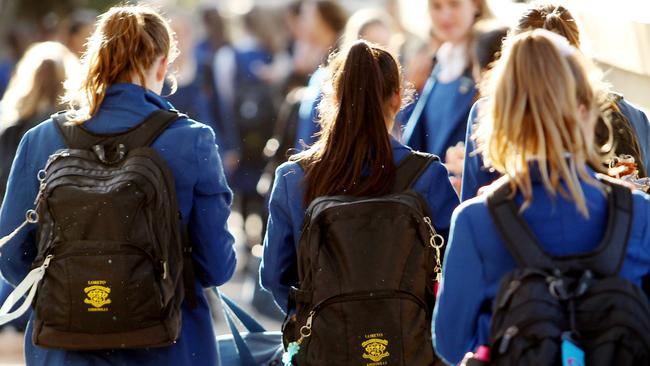
GETTING TO SCHOOL
Do a training run to school in the days leading up to the first days of school.
Whether your child is being driven, walking, cycling, or taking public transport, figure out how they will get there and approximately how much time they will need to set aside each morning.
Look at options for troubleshooting should the preferred tram, train or bus not be available. Check out apps such as TramTracker.
If you are planning to drop your child at the gate take the time to figure out where you can safely drop them or park. Double parking at school crossings is often followed by a hefty fine in the mail.
If your child is cycling or riding a scooter find out where they will need to store their bike, scooter and helmet.
NEW CAMPUS
For secondary school the campus will be huge for Year 7 starters. Many schools will have plans online.
It will help your child to know what the various buildings are called, where sport is held and other activities.
Late notices, for late arrival when you are lost, can mount up.
LABEL EVERYTHING
Name and tag absolutely everything.
If you are going to spend hundreds of dollars on school uniforms, laptops and text books label them.
If you are ordering labels in bulk consider using the family name and a parent contact number so items will be easily handed on to family members.
Sew on or iron on names, which can be quickly ordered and turned around, are your best friend.
Alternatively, a fabric marker will do the trick.
LOST PROPERTY
Make locating the school lost property tub a priority.
As a parent or carer, you might find yourself visiting it regularly.
ONLINE PORTALS
Familiarise yourself with the online school management system.
There are different student management systems such as Compass.
You will be given a log in.
This will be another of your best friends.
It will enable you to approve absences, pay and approve excursions and incursions, access the newsletter and keep up to date with events.
If you keep an eye on this you won’t get caught short for curriculum days, sports days, dress ups, compulsory swimming and various other activities that require outfits, cash, food to share or equipment.
This also will provide details of extra activities such as music, sport and dance classes.
ABSENCES
Using the online portals you can notify the school about absences.
You hop on and approve absences due to illness, holidays, appointments.
Different schools approach roll taking differently but if your child is absent or late for a class you will get an online notification or text.

LOCKERS
Lockers are a new thing for many year seven students.
Often they are combination locks which, for the first timers, can be hard to manage.
Location of your locker also can pose a problem.
If you are allocated a locker which is hard to get to, make contingencies so you are not late for class.
Some parents colour code lecture pads for each subject, making it easy to find in the locker.
CANTEENS
Canteens are bigger and more hectic.
Many offer priority for those ordering online.
Many schools also allow pay and go payment on cards.
VOLUNTEER OPPORTUNITIES
Many parents take a back seat once their kids get to high school for various reasons.
They might be burnt out, have work commitments or their child independently travels to and from school so they do not have much call to be at the school.
However, some parents will be keen to join the school community and contribute.
It might be helping with sausage sizzles, uniform shops and one off events.
It’s a great way to meet the parents of your child’s new friends.
SCHOOL RULES
Rules, rules, rules: One of the biggest changes from primary school to high school is the number of rules.
You have to wear a blazer, or you can’t walk around in a rain jacket, you have to wear a tie or a straw hat.
Failure to follow the rules results in detention.
NUDE LUNCHES
Schools are becoming increasingly vigilant about cutting rubbish.
While some people say this is not the role of the schools, the Australian Curriculum sets out sustainability as a learning area.
Some schools will be composting, recycling or asking you take your rubbish home or send lunches without packaging.
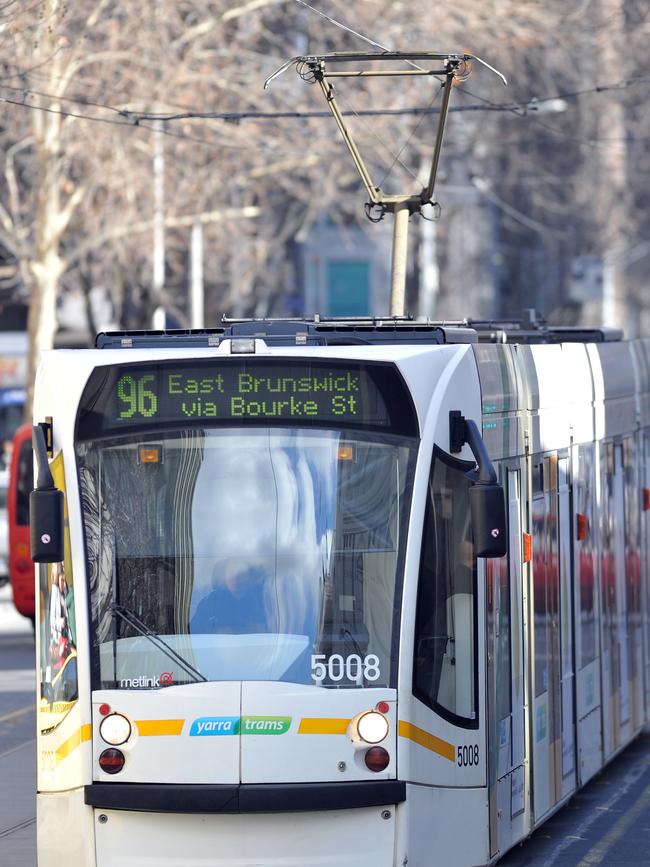
TAKE PICTURES
Capturing the first day of school memories.
Consider taking some shots in the days before when you are making sure everything fits and wearing in school shoes.
That first day of school morning can be full of anxiety so you might not get the best shots.
Better to have a good breakfast.
PUBLIC TRANSPORT
Explore options for public transport and the type of Myki card your child might need.
It may be more economical for full time primary, secondary, VCE, VCAL and TAFE students travelling outside of their suburb and taking public transport to and from school each day to buy a half or full year student concession card.
There is a Victorian and regional pass, that are tailored to your needs.
If your child is not carrying the card and gets picked up by a ticketing officer you, as the guardian, are likely to get a phone call telling you they have a warning.
The upside of the yearly or half yearly Myki cards is that you never have to automatically top them up.
Alternatively, you can organise an automatic top up for the Myki card.
FIRST DAY NERVES
For some children this is the day they have been waiting for all their lives.
For others it will be a source of great anxiety.
Try to strike the balance between building up anticipation and stressing them out.
If they are not going to be in class with any friends, couch it as a chance to meet new children.
While you might be concerned as a parent it is likely your child may have been separated from certain friends for a reason.
Instead of complaining, help your child build resilience.
CHANGING FRIENDSHIPS
IF you child has some friends starting at the same time you might be able to catch up after school or share drop off and pick ups.
But, as a parent, if you find that your child is no longer best friends with their life long friend from mum’s group don’t be sad.
Friendships will change and evolve over the years.
TIMETABLES
While there is a move towards online textbooks, many high school students still have to lug around a lot of books.
With lunch boxes and netbooks, many children will be carrying big bags.
Encourage your child to become familiar with their timetable so they are carrying fewer books to and from school.

MOBILE PHONE BANS
From next year mobile phones will be banned in government schools.
While many children have them in primary school, for some families the start of Year 7 marks the decision to provide a mobile phone.
Schools are working through the process but phones will be off during the school day.
Private schools have varying rules.
BYO DEVICES
While many primary schools now have iPads and similar devices, at high school netbooks are required.
Some schools will offer a leasing arrangement while others will want to you Bring Your Own Device.
They are usually quite prescriptive about the requirements of the netbook.
While schools often won’t name a preferred brand, they will be clear about what is required.
Hold off buying until you know.
Some families will include the new netbook as part of a Christmas gift.
PARENT-TEACHER INTERVIEWS
They are usually conducted early in the new school year.
Often parents will be notified when they can book interviews.
It is not quite as frenetic as getting on Ticketmaster to book AFL finals tickets, but it is worthwhile getting on early so you can book the teachers you want to see at the times that are convenient to you.
In Year 7 you may decide to see each teacher to get a feel for how your child it settling in. As time goes on, in those middle years where they are undertaking electives more for enjoyment than a career paths, you might not see those teaches.
There also will be different and regular ways of reporting your child’s progress.
When you do turn up at the interviews, at many schools, you will be feel like you are embarking on the Amazing Race.
Spots are often just five minutes and you race from one to the next.

ATTENDANCE
Settling into secondary school can be daunting.
But, experts all agree, it is important to keep attending, rather than taking a day off.
HOMEWORK
Homework often steps up once you get into secondary school.
The online management tools will often have homework requirements documented and you will be able to see if work is completed on time, late or not done at all.
SCHOOL DIARIES
Physical diaries are used by some schools to ensure students keep on top of requirements. Encourage use of the diary. Some schools will have online diaries.
MORE NEWS
ARE YOU SMART ENOUGH TO PASS THE YEAR 9 TEST?
MELBOURNE SCHOOL BANS FAMILY HOLIDAYS
SCHOOL TELLS KIDS TO TAKE THEIR RUBBISH HOME
ROUTINE
Get into new routines for sleep and wake up times.
Often in secondary school students will need to leave home earlier than in primary school.
EVERY CHILD IS DIFFERENT
Ensure the school is aware of your child’s particular needs.
That might be dietary, educationally or emotionally.
While you won’t want to tell them your life story, they need to know about issues that will impact on your child’s life at school.
Originally published as How to survive high school: A guide for parents
